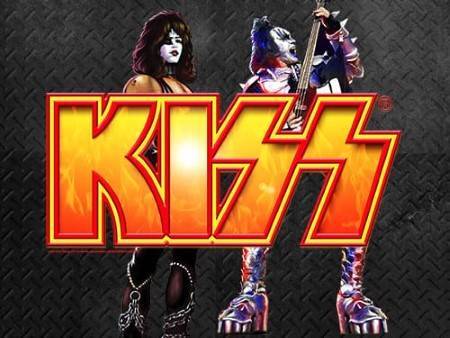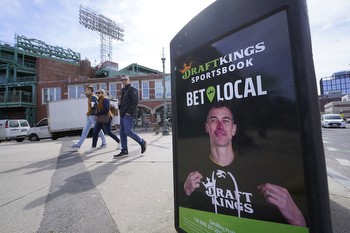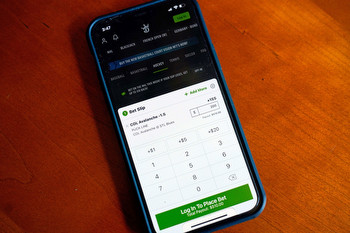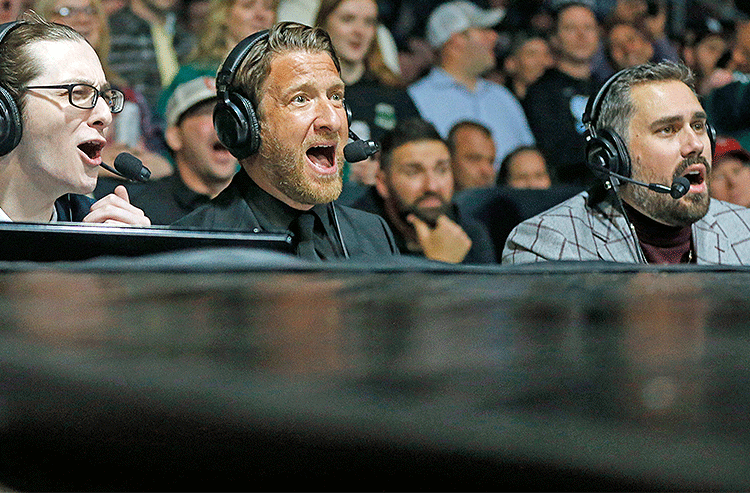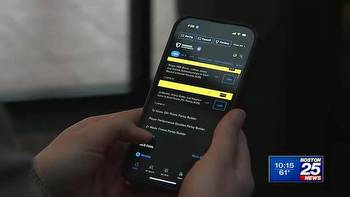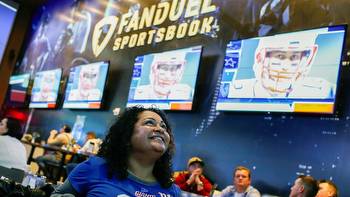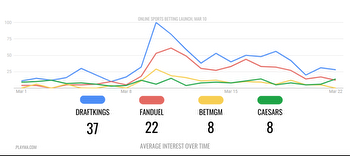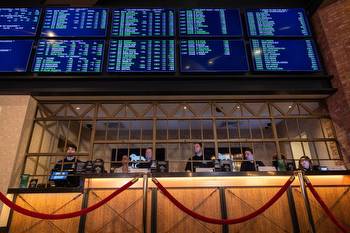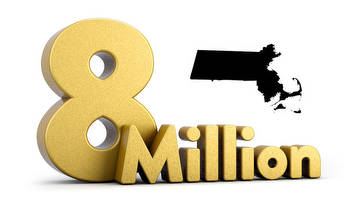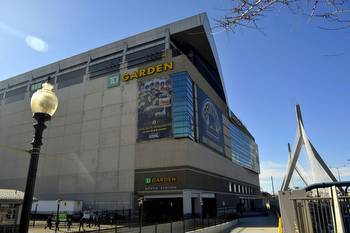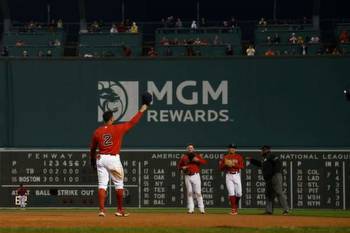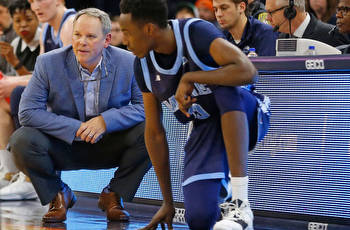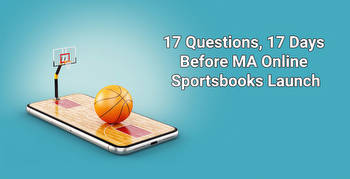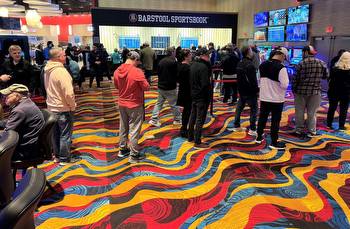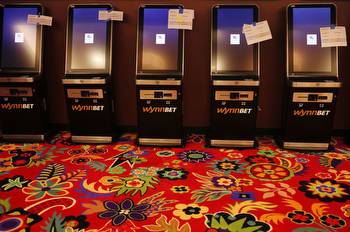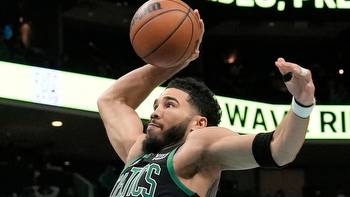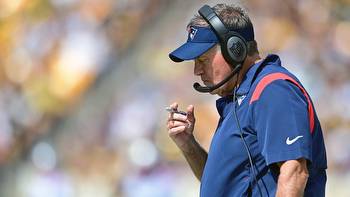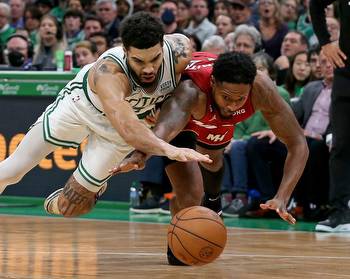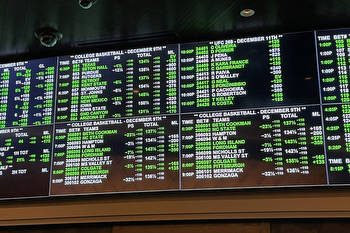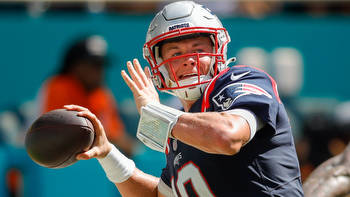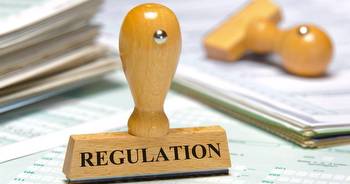OBF: Mobile betting in Massachusetts off to wild start
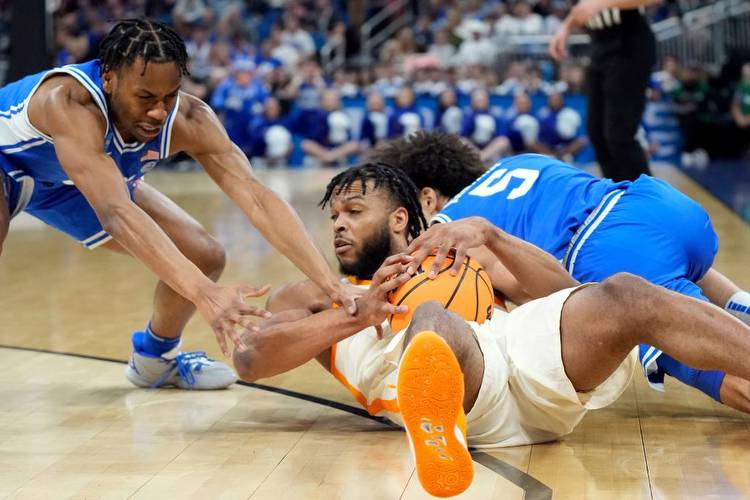
That’s how one top executive in the online sports betting industry described the start of mobile betting in Massachusetts to me the other day.
Welcome to Problem Gambling Awareness Month.
The “insanity” is everywhere.
It exists in a tsunami of advertising not seen since the push to pass the Millionaire’s Tax in 2022.
It lives in online accounts where players see $2,000 deposits balloon into $10,000 worth of bonus bets.
It breathes in odds boosts that pay even money on a $50 bet if the Celtics score one point, or the Bruins get one shot on goal.
In addition to this being “absolute insanity,” it’s also “unsustainable.”
Again, his words, not mine.
No matter how many times the house always wins – and it usually does – no house is big enough to sustain itself by giving away $50 or $100 to potentially 400,000+ mobile betting customers in Massachusetts every time the Bruins or Celtics play.
That equates to potentially $40,000,000 a whack. Times two.
The hold for legal, online, regulated sports books usually averages between 8-12% pre-tax. The legal books engage in a non-stop, highly competitive struggle to win and keep customers. Full-disclosure-shameless-plug alert, I work for a company named bookies.com that helps them do just that by using online search and other SEO-related tools.
Anyone naïve enough to think sports betting “began” in Massachusetts in 2023 believes Wally can cure cancer and fix the Red Sox rotation before Opening Day. It’s just as lazy a mindset to posit that every gambler ends up selling their Mazda to lay action on the Bruins to win the Cup.
There’s evidence of baseball being played in Pittsfield as far back as 1791. No doubt the locals weren’t shy about wagering shilling or two on the local nine. A gambling scandal rocked the National League … in 1877. Betting was still allowed at Huntington Avenue Baseball Grounds until two months before the 1903 Boston Americans won the first World Series. It never stopped. A gambling riot roiled Fenway Park on June 16, 1917, more than 100 years ahead of the Supreme Court’s decision that allowed nationwide sports betting. They shaved points at Boston College in 1978 when no one had heard of DraftKings, BetMGM, or ESPN.
The legal sports betting balance is no difference than the alcohol, weed, or Mass Lottery balance. Good or bad, their use by adults is legal.
Moderation is essential.
How do you promote a legal product for adults that – if misused – could lead to calamitous consequences? The answer remains in flux. The saturation strategy works for McDonald’s, Budweiser, Ford, Apple and Coke. Massachusetts could be the final major state betting launch of 2023. That, too, is driving this.
Sports betting operators are divided on how much advertising is too much. They had better figure it out soon, or lawmakers and regulators will do it for them. A push to ban all sports betting ads is underway in New York.
While “absolute insanity” will taper, the “hangover” phase has begun.
“Now everyone has got to mop up the mess and clean up their numbers by the end of the first quarter,” my industry source said.
There are six mobile operators in Massachusetts. In the first three days of mobile betting, more than 8.1 million people attempted to log into those betting sites, according to GeoComply. None are eager to release revenue figures ahead of the MGC. March’s sports betting revenue and taxation figures will be released on the first business day after April 15 (which falls on a Saturday).
DraftKings founder and CEO Jason Robins believes in a year Massachusetts could be the largest sports betting market “per capita in the United States.” The gross gaming revenue for the first month of mobile betting will be gargantuan. It will be in part inflated by the handle generated by the above-mentioned deals.
The Massachusetts Gaming Commission has made it clear that one of its biggest concerns is the violation of advertising regulations in both letter and spirit.
Two mobile operators – FanDuel and Barstool – have been flagged by the MGC for purported ad violations. In the case of Barstool, the infamous “Can’t Miss Parlay” triggered the ire of regulators.
Look for a “Can Miss Parlay” in the future.
For some in the media, sports betting is an easy foil. Then again, cigarettes remained legal during a pandemic in which thousands died due to an airborne virus. And John Henry’s newspaper never said a word.
Sports betting alters how people watch games. It challenges blind faith in the home team. It keeps you watching when the outcome has been decided.
Is this good or bad? I lack the moral sanctimoniousness to make that call.
But having $15 on the over/under of a Red Sox–Angels game when it’s 8-1 in the seventh beats the hell out of flushing money down the toilet at the local movie theatre watching anything that isn’t “Top Gun – Maverick.”
Brackets are no longer relevant during March Madness. Sorry, 1988. Who needs to sweat out 64 games when you can parlay UConn, Alabama and Michigan State in one evening?
The trope that Massachusetts doesn’t care about college basketball has been wrecked.
At WynnBET, college basketball has absorbed 41.5% of wagers and 49.8% of money bet via its mobile site in Massachusetts. Since “Boston’s Sportsbook” opened in Everett on Jan. 31, it has taken 41.7% of its total action on college hoops.
Not bad for a hockey town with a baseball team.
Even if it means the end of the world.
